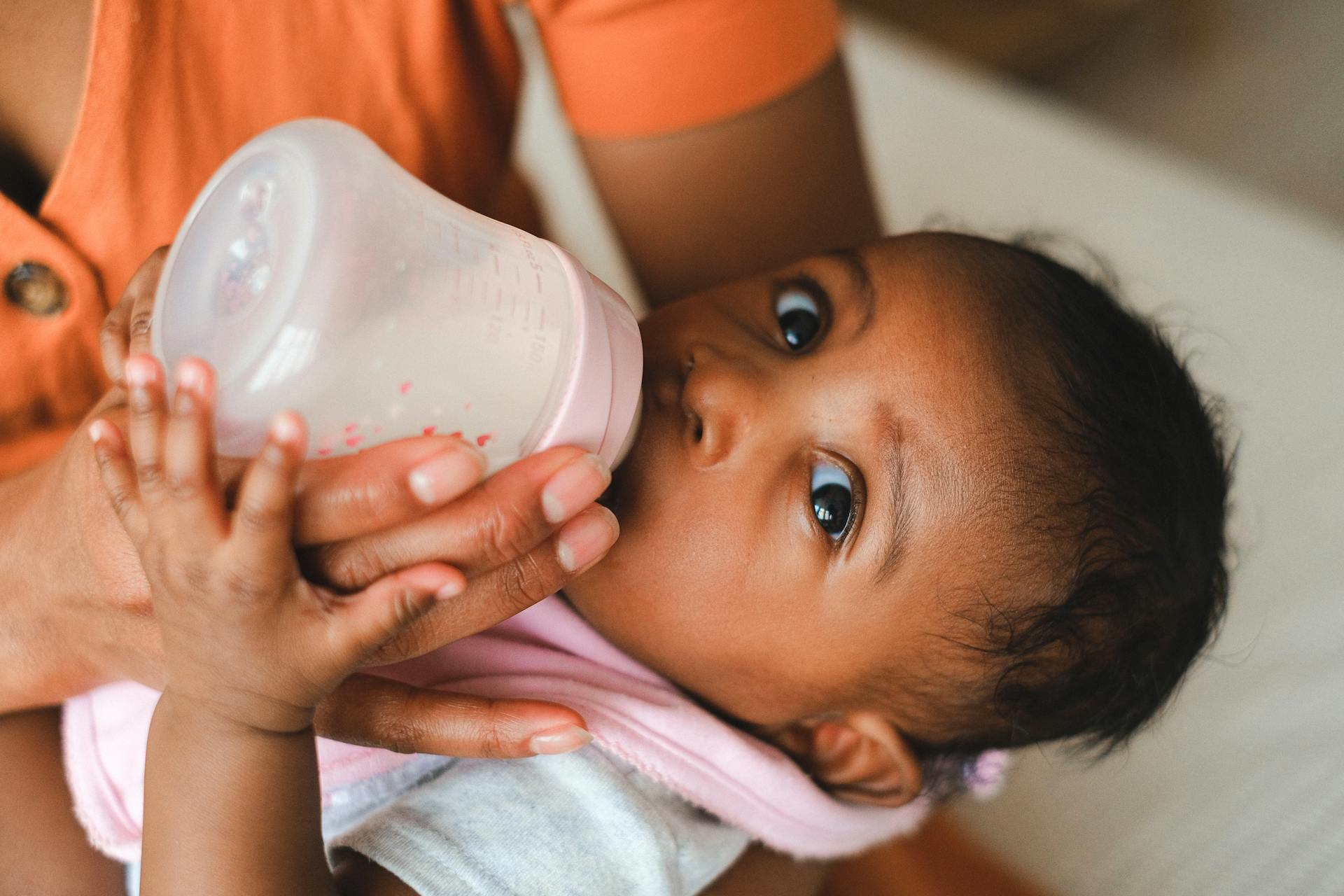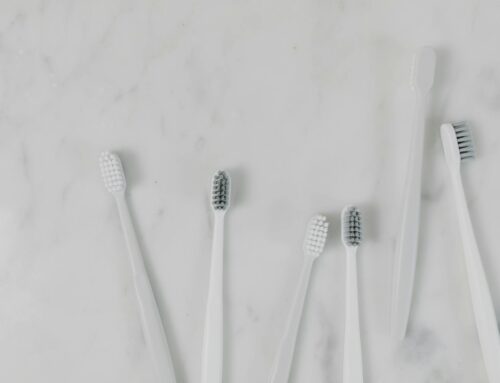Bottle feeding children to sleep is a common practice. While bottle feeding to sleep is recommended for the first 12 months of a child’s life, new research suggests that doing this for longer than a year can have a negative impact. The research suggests that long-term feeding can affect both oral health and physical health.

Managing the sleep of toddlers can be very difficult. Tantrums, wailing, and waking up in the middle of the night are all common issues that many parents can relate to.
Therefore, when faced with such challenges on a daily basis, many parents opt to bottle feed their children in an effort to encourage them to drift off to sleep comfortably.
However, new research suggests that doing this beyond the first 12 months of their life has a negative impact on their oral and physical health [1]. This is rather alarming, especially given how widespread it is.
This research is very helpful, as these findings can help dentists to pass this knowledge onto the parents of young children.
Bottle feeding
As mentioned earlier, many people give their children a bottle before going for a nap or at bedtime. Doing so can provide comfort to an unsettled or unruly child.
By doing this, it can increase the chances of the child’s parents having an improved night’s sleep – thereby boosting their own health and wellbeing.
But while most parents do this in the first 12 months of a child’s life, some people continue this practice for longer. In fact, research suggests that around 30% of children are bottle fed to sleep at the age of 2 [2].
There are existing concerns of the impact that feeding just before sleep can have, but these are predominantly physical health issues like respiratory issues [3].
However, the new research has looked at how giving a bottle to a child just before sleep can also negatively impact their oral health.
The Research
The research was carried out by a team of researchers from the University of Sydney. Their findings have been published in the Australian and New Zealand Journal of Public Health [1].
The research involved more than 700 children in Sydney being followed from birth to the age of 4. Specifically, the researchers aimed to look at their feeding habits, weight, and dental health [1].
In Australia, the researchers pointed out that official guidance suggests weaning a baby off their bottle by the time they are 12 months old. Instead at that point, officials recommend that they breastfeed or drink from a cup instead [1].
The researchers mentioned that similar studies have been conducted worldwide. However, Australia represents something of an anomaly, with 89% of the population having access to fluoridated water – a much higher proportion than many other countries [1].
Out of the study participants, 30.3% of children at two years of age were being bottle fed to sleep. 21.7% were still doing so aged three [1].
The participants had both dental examinations and anthropometric measurements, which allowed the researchers to examine both oral and physical health [1].
The results found that children who were bottle-fed aged two were likelier to be overweight aged 3-4 when compared to those that stopped being bottle fed at 12 months [1].
Additionally, children that were bottle-fed aged three had more teeth that were affected by tooth decay compared to participants that did not have a bottle feed at this point [1].
In an unexpected finding, the researchers found that children whose mother was born overseas had a higher risk of tooth decay [1]. This was believed to be due to differences in culture, and the fact that Australia’s water fluoridation system contributes to fewer cavities compared to other nations.
Explaining the results
To many, these findings may be surprising. Most people see bottle feeding their child to sleep as a common and harmless practice. But as the research shows, this isn’t correct.
The researchers explained that longer use of the bottle can lead to a child drinking more milk than they need. Therefore, this increases the risk of dental cavities [1].
Even if a child has had their teeth cleaned before bedtime, the sugar in milk and in formula will impact their teeth. With low saliva production taking place during sleep, this results in an enhanced chance of cavities developing due to the toxic mix of sugar in the mouth and limited saliva [1].
Moreover, it means that children drink the milk out of habit rather than hunger. This results in them having less solid food, meaning that they can potentially miss out on vital nutrients.
Furthermore, the researchers pointed out that longer use of the bottle can result in overfeeding. This puts the child at risk of unhealthy weight gain.
Summary
This research underlines the hidden risks of bottle feeding a child before sleep. It is something that, quite understandably, is a largely unknown risk.
It is very important that parents are aware of the risk. Dentists and other health professionals can make them aware of this at appointments.
Lead author Heilok Cheng commented on the findings. She said that it is important for health professionals to know about how such messages can be spread, suggesting that adopting this practice “becomes as routine as children brushing their teeth twice a day” [2].
It is recommended that weaning a child off night-time feeding should be done gradually. Rather than stopping suddenly, slowly reducing the amount of milk in the bottle can help.
Being a parent is very challenging, and looking out for the health and wellbeing of children is crucial. By knowing about the risks of bottle feeding, it can help to contribute towards the ongoing health of the child.
Thinking points…
[1] It isn’t just important to look after your oral health in your childhood! Instead, you need to make sure that you protect your teeth throughout adulthood. A good way of aiding this is to attend regular dental check-ups. By doing this, it enables a dentist to take a look at your oral health, identify any problems, provide advice, and set up a treatment plan if necessary. We recommend that you book an appointment now!
[2] Do you have young children? If so, take this as a chance to think about if you are bottle feeding them too much. Alternatively, do you have any friends or family members who are young parents? If so, they could definitely benefit from having this knowledge. In any case, you could share this article with your family members and social network!
What we offer at Taradale Dental
Taradale Dental is a dental clinic based in Calgary, Alberta, Canada. At our Calgary dental clinic, we provide a range of services for our patients.
We advise our patients to attend our Calgary dental clinic at least twice per year for a regular dental check-up. At these check-ups, we provide a comprehensive review of a patient’s oral health. If any problems are detected, we have many treatments available. For example, these include cavity fillings and root canals. To strengthen your oral health, we recommend brushing your teeth at least twice a day and flossing regularly.
Here at Taradale Dental, we also have some cosmetic treatments available! These include dental implants, teeth whitening and Invisalign™! Our patients find that these treatments have a positive impact on their appearance, confidence and self-esteem.
Moreover, the fees of our treatments at our Calgary dental clinic Taradale Dental are set in line with the Alberta Dental Fee Guide. This ensures transparent and fair pricing, with no hidden costs.
We hope to see you soon at our Taradale Dental clinic in Calgary! You can find out more about us by visiting our website https://taradaledental.ca/!
References
[1] Cheng, H., John, J., Scott, J., et al. (2025). Bottle feeding to sleep beyond 12 months is associated with higher risk of tooth decay and overweight in Australian children: Findings from the Healthy Smiles Healthy Kids cohort study. Australian and New Zealand Journal of Public Health. 100224. DOI: https://doi.org/10.1016/j.anzjph.2025.100224.
[2] Willis, O. (2025). Bottle feeding toddlers to sleep linked to higher weight and dental decay, study finds. Available: https://www.abc.net.au/news/health/2025-03-19/bottle-feeding-toddlers-sleep-link-higher-weight-cavities-decay/105065874.
[3] Kim, H-Y., Han, Y., Pyun, Y., Kim, J., Ahn, K., & Lee, S-I. (2011). Prolonged bedtime bottle feeding and respiratory symptoms in infants. Asia Pacific Allergy. 26 (1): p30-35. DOI: https://doi.org/10.5415/apallergy.2011.1.1.30.


